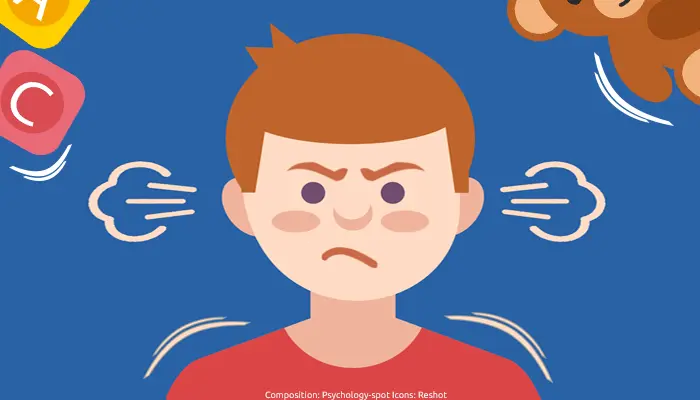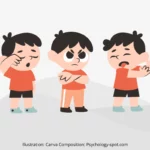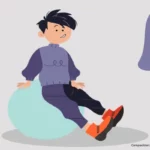
Nobody lectures on someone else’s head, says an old saying. And many children follow it to the letter. Whether because they want to experiment or because they are going through a stage of reaffirming their identity, they sometimes flatly refuse to follow their parents’ instructions.
At that point we have two options: 1. lose our temper and try to impose ourselves or even punish them or, 2. stay calm and apply the technique of natural and logical consequences. The second option is usually better.
To educate you have to be an authority
In early childhood education, it is necessary to impose certain rules and norms. These will not only keep children safe, but will also give meaning to their world, so that they will transmit a feeling of security that is essential for their emotional development. However, it is not always easy to get them to obey.
Many parents lose their temper when their children contradict them or disobey their orders. Then appear anger, irritability and also frustration.
But… would you trust the judgment of a person who loses his temper at the slightest setback?
Probably not. And neither do children.
When babies are born, they don’t understand language, but they are very intuitive. In fact, a classic Psychology study carried out with more than 100 12-month-old babies, discovered that at that age they already used their parents’ facial expressions to orient themselves in ambiguous situations and know if they were in a safe or dangerous environment, to respond consequently.
Another more recent research carried out at the University of California found that babies quickly become aware of their mothers’ stress and react with a significant increase in heart rate within a few minutes. That means babies and children are experts at decoding adults’ emotions.
Consequently, whenever their parents lose their temper or become frustrated, children perceive that they have lost control and, therefore, assume that there is no reason to listen to them. Of course, this is not a logical analysis but a natural reaction that occurs at a subconscious level.
Authority, on the other hand, involves maintaining self-control in the midst of the storm to become a rock of serenity, so that our words really have weight in the eyes of children. And that authority is not imposed by force or punishment, but is demonstrated on a daily basis with tranquility and wisdom. There is a very useful technique to enhance it: natural and logical consequences.
What are natural consequences in early childhood education?
Children make decisions about their behavior depending on what they want or how they see things. And that’s not bad. At the end of the day, we all want to raise children who become autonomous, free and independent people. However, the problem begins when those decisions are not the most appropriate, such as when they have a tantrum.
At that point, natural consequences come into play, which are nothing more than the logical effects that a behavior has when an adult does not intervene. For example, if a child throws himself on the floor in a tantrum because he wants you to give him a toy and gets it immediately, he will continue to repeat that behavior in other contexts because he has understood that this will achieve what he wants. On the other hand, if you ignore him, you will give him the opportunity to experience the consequences of his bad behavior.
Natural consequences allow parents to intervene less and eliminate the typical “I told you so” or the need to lecture. They give the child freedom to choose their behavior and, at the same time, they become a powerful learning tool that helps them understand:
• That every act has consequences and, therefore, it is better to think before acting
• That he must take responsibility for his behavior, good and bad
• That in many cases it is better to listen to adults because their life experience will help them avoid unwanted consequences
In fact, natural consequences produce direct learning that is faster and more effective than any threat or punishment. If the child does not fall asleep early, the next day he will be tired and if he has not wanted to eat, then he will be hungry. As simple as that.
The 3 principles of natural consequences
The application of natural and logical consequences must be based on common sense, respect and empathy since we cannot lose sight of the fact that its objective is not to punish but to educate. Therefore, it is necessary to follow these three principles:
1. Repress the overprotective impulse. First of all, you have to suppress the urge to solve the problem immediately. You must remain firm, something that is not easy at all because parents have a tendency to be overprotective of their children. However, even though it hurts us, sometimes it is better that they experience first-hand the results of their obstinacy. These lessons in humility and responsibility will serve them well later in life and save them from more serious problems.
2. Develop a climate of respect. On the other hand, it is also necessary to be empathetic with their emotions and treat them with the same respect that we demand for ourselves. That is what differentiates natural consequences from punishment. While punishment often involves an arbitrary decision (such as banning video games) to punish bad behavior, direct consequences are simply the world in action, a logical effect derived from a cause.
3. Ensure the safety of the child and others. Logical consequences do not apply when experimentation could pose a danger to the child. For example, we cannot let him play in a busy street, use knives in the kitchen or play with matches at the risk of starting a fire. Likewise, we should not let his exploration interfere with the rights of other people, either in the form of annoyance or damage.
Furthermore, it is important that the logical consequences are immediate, so that the child can establish the cause-effect relationship. They must also be limited in time and proportional to the damage caused. Also, once the child experiences the consequences, the environment must return to normal.
It should be noted that this technique is not usually applied to children under 3 years of age since they still do not fully understand the cause-effect relationship, so it would be counterproductive. On the other hand, it is effective from the age of 5 or 6, when children begin to be more aware of the repercussions of their actions.
How are natural consequences applied?
As a general rule, natural consequences are applied when there is systematic behavior that you want to correct. For example, if you ask your child to pick up his toys when he finishes playing, but he never does.
1. Warn of the disaster. Without dramatizing and in a synthetic way, tell him what can happen if he doesn’t pick up his toys. If you leave an electronic toy in the yard and it rains, for example, it is likely to break. And if he leaves a stuffed animal in the living room, maybe the pet will destroy it. This way there will be no surprises and the child will be able to quickly associate the natural consequence with his behavior.
2. Let him decide. Although it is difficult, in order for the child to experience the direct consequences of his actions, we must let him move forward with his behavior.
3. Empathize with his emotions. When the child notices the problem, he is likely to feel bad. Don’t scold him or say phrases like “I warned you, I knew it was going to happen!”, simply say: “I understand that you are upset/sad/frustrated because you no longer have your toy.”
4. Stand firm. Your child will probably feel bad and ask you, for example, to buy him another toy. If you give in, he won’t really experience the direct consequences. Therefore, stand firm. You can tell him: “The toy is broken because you haven’t protect it, we won’t buy another one.”
5. Reflect on what he learned. When the child calms down, it is important to reflect on what happened. Don’t give him a lecture, guide him through questions like: what happened? How you felt? What will you do to prevent it from happening again? Or how you believe that you can solve it?
Little by little the child will internalize what happens naturally when he makes certain decisions or does not listen to his parents. If he doesn’t like the consequences, he will learn that he has to take responsibility for it and deal with them. This way he will develop responsibility and become more receptive to adult instructions to avoid mistakes.
At the same time, this educational technique allows us to eradicate punishment from education and creates a climate of respect for individuality to raise more conscious and responsible children. In addition, it will improve coexistence at home and will gradually eliminate the shouting and frustrations that were previously daily bread.
References:
Waters, S. F. et. Al. (2014) Stress Contagion: Physiological Covariation Between Mothers and Infants. Psychological Science; 25(4): 10.1177.
Sorce, J. F. et. Al. (1985) Maternal emotional signaling: Its effect on the visual cliff behavior of 1-year-olds. Developmental Psychology; 21(1): 195–200.



